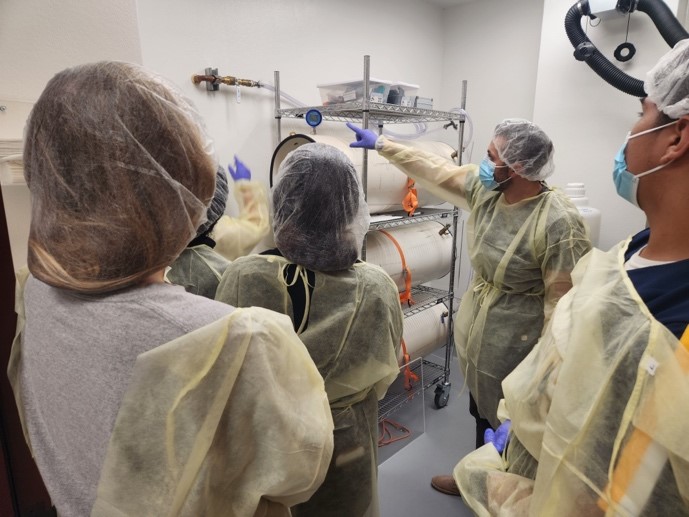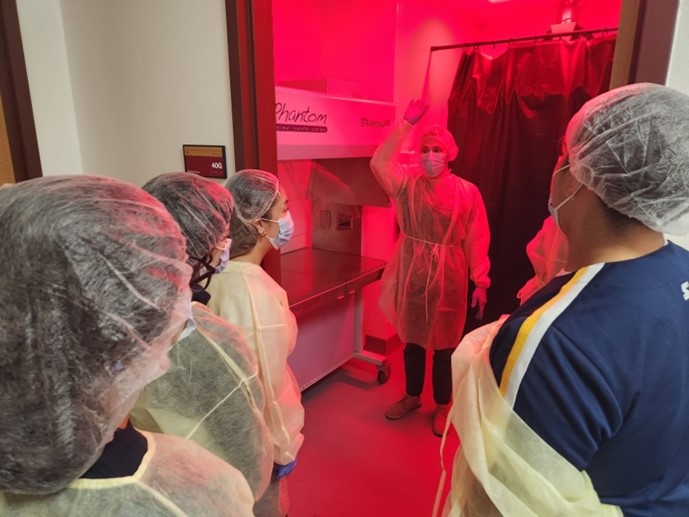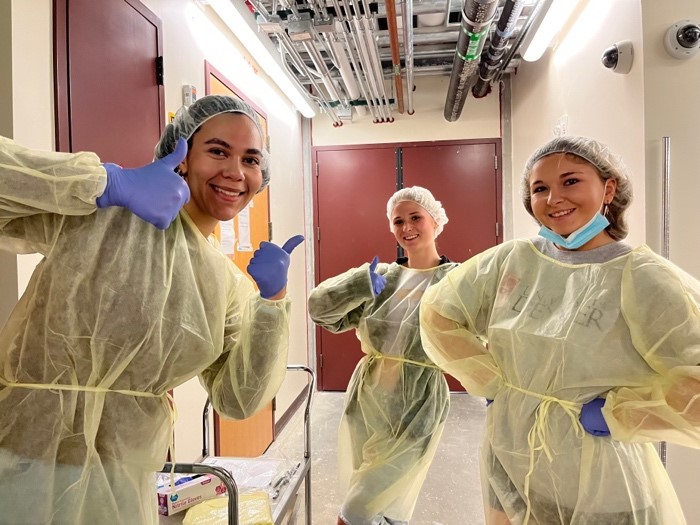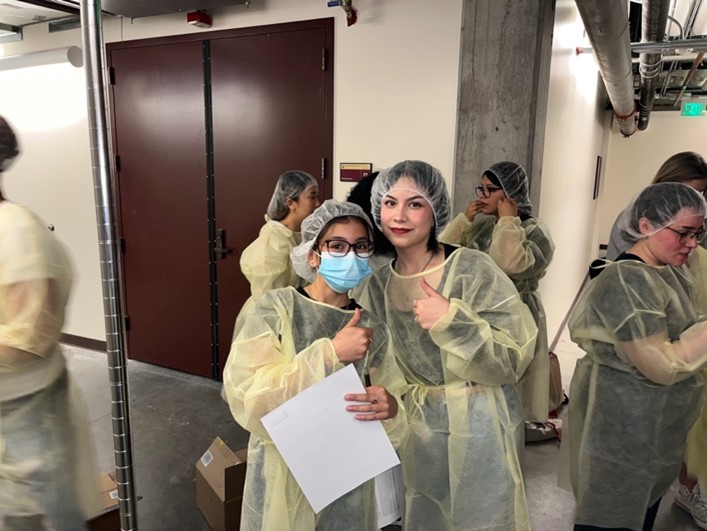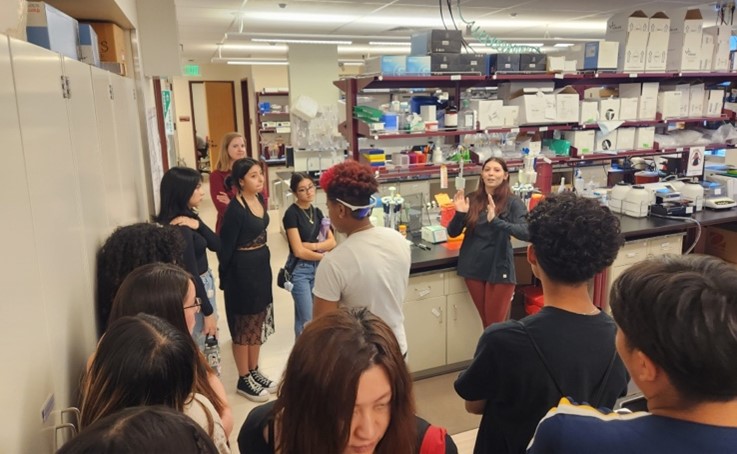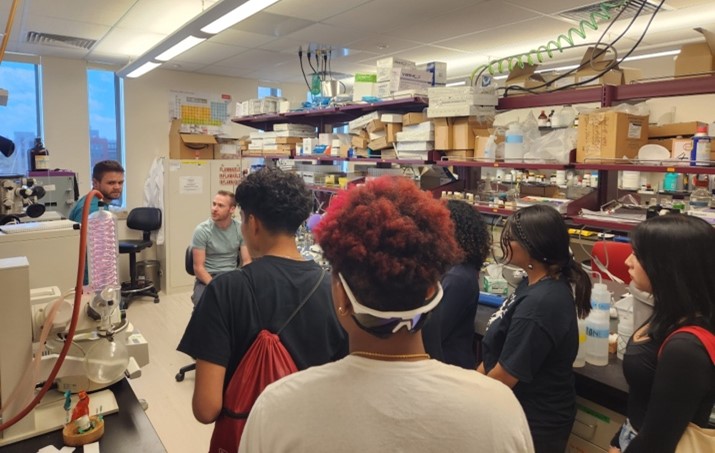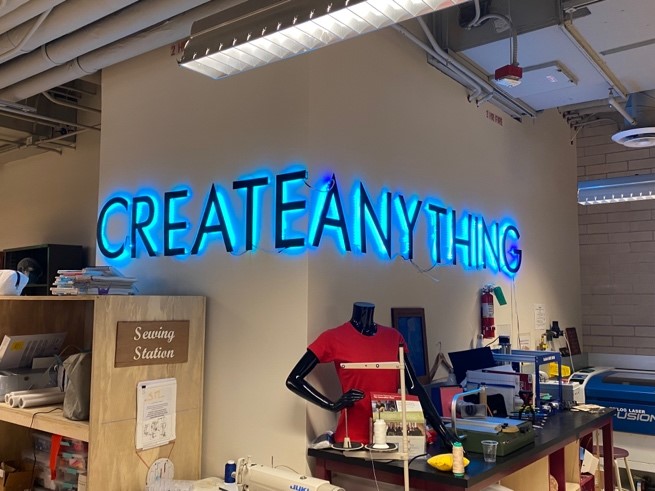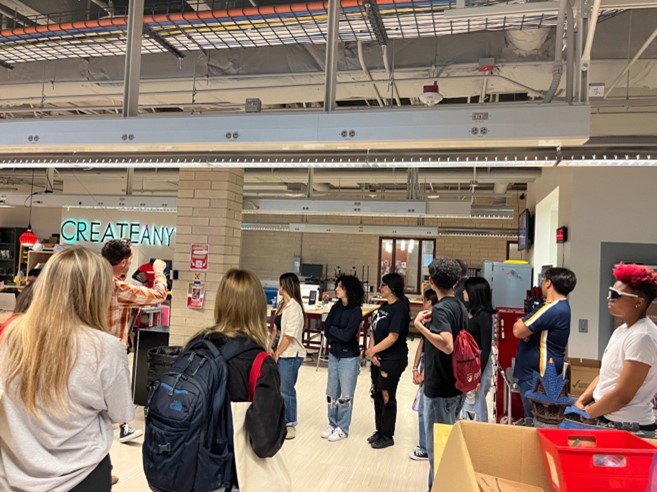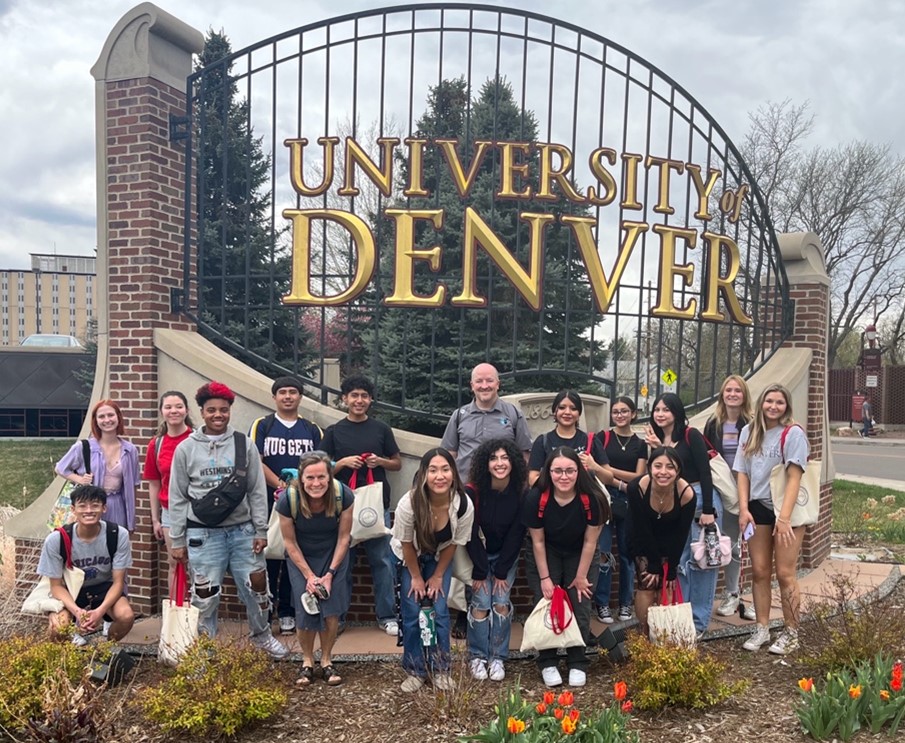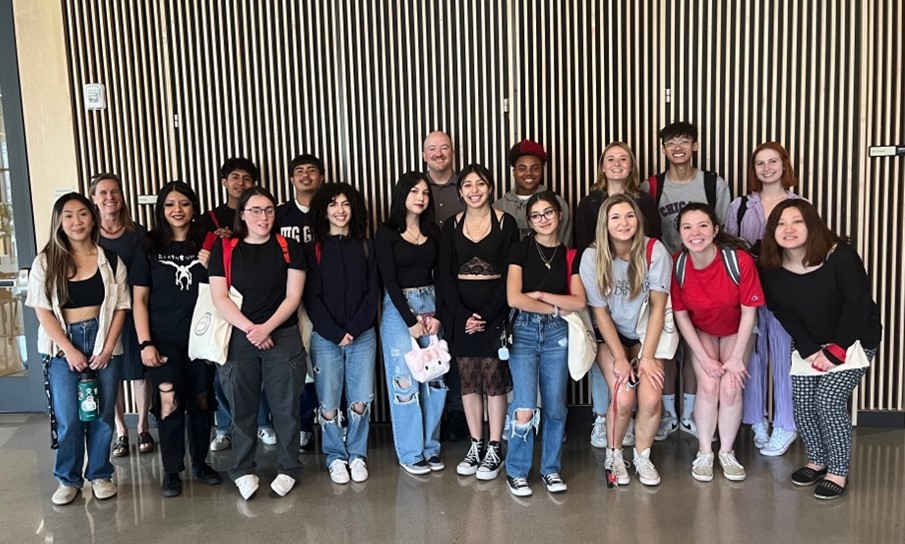Near-Peer Mentoring – Connecting, Growing, and Learning
By: Barbekka Hurtt, PhD | Biological Sciences, and Naichen Zhao, PhD candidate | MCE – Educational Leadership and Policy Studies
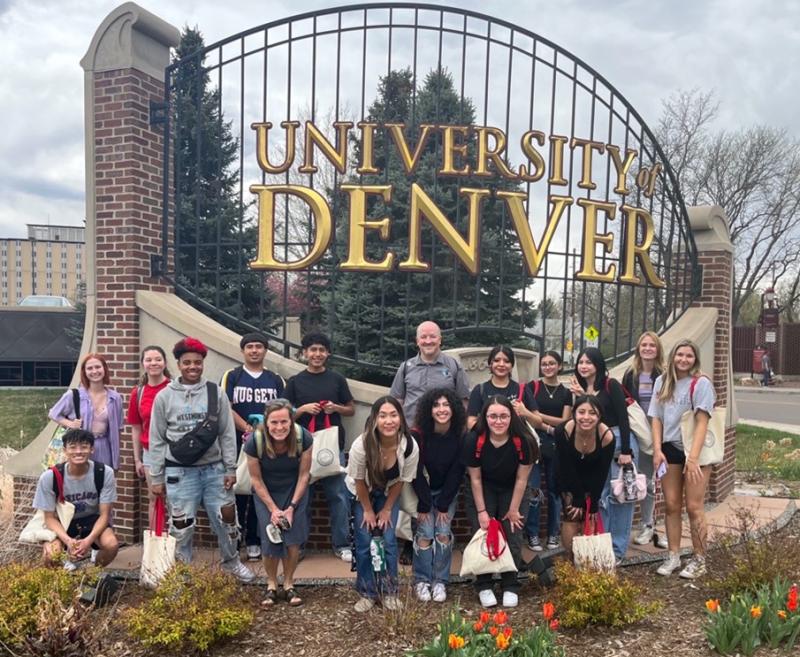
The Community Engaged Teaching grant we received in support of the STEM Mentor Internship program was instrumental in allowing us to host Westminster High School (WHS) seniors enrolled in the Biomedical Sciences Project Lead the Way capstone course, taught by Mr. Scott Troy, for a DU campus visit in May 2023.
The STEM Mentor Internship is a near-peer mentoring collaboration that provides the opportunity for WHS high school seniors to meet with current DU STEM UG students once a week, generally via Zoom, to talk about aspects of the high school to post-high school transition, navigating college or other post-high school options, and to grow personal and professional characteristics of interest. For the DU STEM undergraduate mentors, they develop mentoring knowledge and leadership skills through this year-long mentoring engagement. While the program has run every academic year since Fall 2020, the May 2023 visit was the first opportunity we had to connect the mentors and proteges in person and we had a great time! The WHS students traveled to DU’s campus via RTD light rail and spent the day with their mentors touring various parts of campus, having lunch and conversation in the Community Commons, and learning more about each other. HUGE THANKS go out to Dr. Jon Velotta in Biological Sciences and his High Altitude Physiology lab, Dr. Briony Catlow (Director) of the Knoebel Institute for Healthy Aging, and Dr. Michael Caston in the Innovation Lab. These labs inspired both the DU mentors and the WHS proteges!
On a community level, our work directly addresses the urgency of diversifying STEM by providing a replicable model that addresses the unique challenges faced by higher education institutions with limited diversity, and the partner public school with a diverse student body. By fostering inclusivity, this relationship empowers students who may have been discouraged from pursuing STEM, thus potentially contributing to a more equitable and representative scientific community. In addition, it empowers participating undergraduates to think critically about education equity issues, promotes empathy and leadership, and cultivates skills and mindsets that position them as agents of change for the public good with STEM-focused talents.
We could not do this work without the financial and personnel support of CCESL, the faculty and staff of the various participating labs, and the Biological Sciences and Leadership Studies programs. We extend our deep thanks to all of them for their support of time and/or funds.
High Altitude Physiology lab (Dr. Jon Velotta) visit
Knoebel Institute for Healthy Aging lab visit (Dr Briony Catlow)
Innovation Lab visit (Dr Michael Caston)
